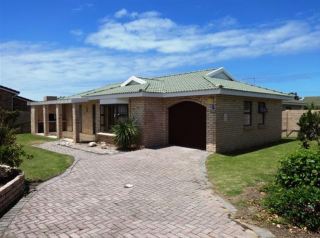Significant impact on the Bay’s early childhood development centres
73 early childhood development (ECD) centres in Nelson Mandela Bay’s developing communities that received intervention from Early Inspiration across 2016/17 reflected an average of 15% improvement in terms of centre compliance at post-assessment.
“124 passionate, dedicated practitioners from Nelson Mandela Bay, that work or volunteer in ECD centres and grade R classrooms took part in our level two skills programme," remarks Early Inspiration MD, Dr Lauren Stretch. "Each underwent a stringent selection process and participated in a holistic programme to improve their skills to improve the development of children under their care."
Each
- attended a range of training modules
- received on-site visits
- had extensive evaluations
- mentorship sessions in their ECD centre
- and completed a portfolio of evidence which includes formative and summative assessment tasks, testing knowledge and understanding, as well as implementation of the skills learnt.
Early Inspiration’s intervention across Nelson Mandela Bay provided support and capacitation of ECD Centre principals and practitioners to keep them up to date on trends, strategies, policies and new opportunities for professional development.
Class and child assessments
Work didn't just end with assessing ECD centres. Early Inspiration evaluated children who attend the schools whose teachers participated in the programme to measure the development and direct benefits of the intervention. "We used a control group as a comparison mechanism, so we have a benchmark to compare the ‘norm' vs. Early Inspiration impacted-centres," adds Dr Stretch. "Provincially, the greatest element of growth in child during the course of the year for the children under the care of programme educators, was cognitive development. The results are a great reflection of the improvement in the development of the brain and an accurate reflection of the remarkable impact that quality, intentional intervention can have on young children."
Home visit support programme
Through the child assessments, at-risk children were identified to provide one-on-one interventions which are child-specific and meets the identified need. Home visits adopt a non-centre based approach to intervention where education not only happens in the ECD centre but also that parents are capacitated on understanding their children's brain growth, needs and way of learning. This intervention provides additional support and offers parents training and development which aids their children. “The six-month home visit programme focusses on one-on-one support and stimulation to assist children in becoming developmentally-appropriate and achieve age-related goals," says Dr Stretch. Post-programme, the children who were at risk, made significant improvements with 79% of the children scoring between 81 and 100% at post-assessment.
For in-depth insight and further information, please review the report here.
If you want to rent to students, do your homework
With attractive yields and reliable tenancies, the appeal is obvious. Student tenancies are often arranged early, well before the start of the academic year and while chasing rent from a group of young people with no income can be off-putting, invariably, collection is easily arranged and students come with guarantors in the shape of their better-off, more-reliable parents. "Landlords of good student houses have a guaranteed market that remains predictable whatever is happening in the economy and the wider property market," says Charlotte Vermaak Chas Everitt Nelson Mandela Bay principal. "In Summerstrand for instance, gross yields can be in the region of 10-11 per cent and many people are using a student portfolio to create income in retirement rather than rely on pensions." Even if the student market is the best option it takes a lot of work to get the property and the location right. Start investigating sold house prices and speaking to local rental and estate agents to get a clear idea of rental yields and tenant profiles. “You need to understand local economy drivers and tenant demand before finding out if there are any upcoming changes that could impact future demand for student accommodation from private landlords,” adds Vermaak.
What to look for
Newer or modernised properties are easier to maintain and functional is the key word. So think plain paintwork, hard-wearing flooring and basic, robust furnishings. Position is less important to students, so while being close to campus and easy access into town is crucial, being on the best road and in the best area isn't. “Students won't reject houses because they're on a busy road, or have a bad view, they will reject them if they're difficult to get to, or cost more than the norm," adds Vermaak.
What’s available
A five-bedroomed townhouse in Summerstrand is on the market for R1,450,000. NMMU accredited student accommodation, the property currently generates R14,000 in rental income per month. A freehold property with levies, it is well-secured and situated close to the beach and local amenities. To find out more, speak to Kwame Nicol 078 053 1462 from Chas Everitt Nelson Mandela Bay.



